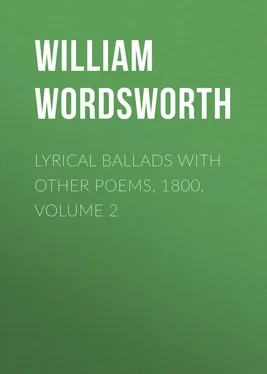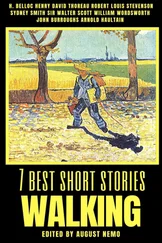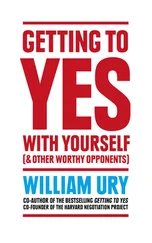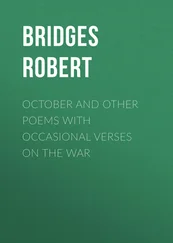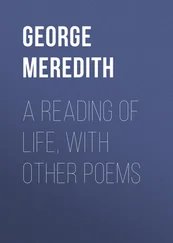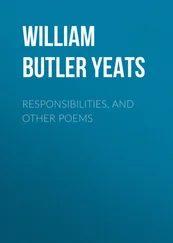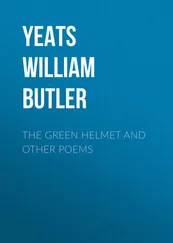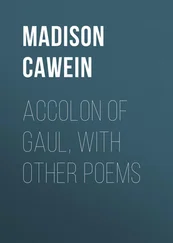William Wordsworth - Lyrical Ballads with Other Poems, 1800, Volume 2
Здесь есть возможность читать онлайн «William Wordsworth - Lyrical Ballads with Other Poems, 1800, Volume 2» — ознакомительный отрывок электронной книги совершенно бесплатно, а после прочтения отрывка купить полную версию. В некоторых случаях можно слушать аудио, скачать через торрент в формате fb2 и присутствует краткое содержание. Жанр: literature_19, Поэзия, foreign_prose, foreign_poetry, на английском языке. Описание произведения, (предисловие) а так же отзывы посетителей доступны на портале библиотеки ЛибКат.
- Название:Lyrical Ballads with Other Poems, 1800, Volume 2
- Автор:
- Жанр:
- Год:неизвестен
- ISBN:нет данных
- Рейтинг книги:4 / 5. Голосов: 1
-
Избранное:Добавить в избранное
- Отзывы:
-
Ваша оценка:
- 80
- 1
- 2
- 3
- 4
- 5
Lyrical Ballads with Other Poems, 1800, Volume 2: краткое содержание, описание и аннотация
Предлагаем к чтению аннотацию, описание, краткое содержание или предисловие (зависит от того, что написал сам автор книги «Lyrical Ballads with Other Poems, 1800, Volume 2»). Если вы не нашли необходимую информацию о книге — напишите в комментариях, мы постараемся отыскать её.
Lyrical Ballads with Other Poems, 1800, Volume 2 — читать онлайн ознакомительный отрывок
Ниже представлен текст книги, разбитый по страницам. Система сохранения места последней прочитанной страницы, позволяет с удобством читать онлайн бесплатно книгу «Lyrical Ballads with Other Poems, 1800, Volume 2», без необходимости каждый раз заново искать на чём Вы остановились. Поставьте закладку, и сможете в любой момент перейти на страницу, на которой закончили чтение.
Интервал:
Закладка:
By this the Priest who down the field had come
Unseen by Leonard, at the church-yard gate
Stopp'd short, and thence, at leisure, limb by limb
He scann'd him with a gay complacency.
Aye, thought the Vicar, smiling to himself;
'Tis one of those who needs must leave the path
Of the world's business, to go wild alone:
His arms have a perpetual holiday,
The happy man will creep about the fields
Following his fancies by the hour, to bring
Tears down his check, or solitary smiles
Into his face, until the setting sun
Write Fool upon his forehead. Planted thus
Beneath a shed that overarch'd the gate
Of this rude church-yard, till the stars appear'd
The good man might have commun'd with himself
But that the Stranger, who had left the grave,
Approach'd; he recogniz'd the Priest at once,
And after greetings interchang'd, and given
By Leonard to the Vicar as to one
Unknown to him, this dialogue ensued.
You live, Sir, in these dales, a quiet life:
Your years make up one peaceful family;
And who would grieve and fret, if, welcome come
And welcome gone, they are so like each other,
They cannot be remember'd. Scarce a funeral
Comes to this church-yard once, in eighteen months;
And yet, some changes must take place among you.
And you, who dwell here, even among these rocks
Can trace the finger of mortality,
And see, that with our threescore years and ten
We are not all that perish. – I remember,
For many years ago I pass'd this road,
There was a foot-way all along the fields
By the brook-side – 'tis gone – and that dark cleft!
To me it does not seem to wear the face
Which then it had.
Why, Sir, for aught I know,
That chasm is much the same —
But, surely, yonder —
Aye, there indeed, your memory is a friend
That does not play you false. – On that tall pike,
(It is the loneliest place of all these hills)
There were two Springs which bubbled side by side,
As if they had been made that they might be
Companions for each other: ten years back,
Close to those brother fountains, the huge crag
Was rent with lightning – one is dead and gone,
The other, left behind, is flowing still. —
For accidents and changes such as these,
Why we have store of them! a water-spout
Will bring down half a mountain; what a feast
For folks that wander up and down like you,
To see an acre's breadth of that wide cliff
One roaring cataract – a sharp May storm
Will come with loads of January snow,
And in one night send twenty score of sheep
To feed the ravens, or a Shepherd dies
By some untoward death among the rocks:
The ice breaks up and sweeps away a bridge —
A wood is fell'd: – and then for our own homes!
A child is born or christen'd, a field plough'd,
A daughter sent to service, a web spun,
The old house cloth is deck'd with a new face;
And hence, so far from wanting facts or dates
To chronicle the time, we all have here
A pair of diaries, one serving, Sir,
For the whole dale, and one for each fire-side,
Your's was a stranger's judgment: for historians
Commend me to these vallies.
Yet your church-yard
Seems, if such freedom may be used with you,
To say that you are heedless of the past.
Here's neither head nor foot-stone, plate of brass,
Cross-bones or skull, type of our earthly state
Or emblem of our hopes: the dead man's home
Is but a fellow to that pasture field.
Why there, Sir, is a thought that's new to me.
The Stone-cutters, 'tis true, might beg their bread
If every English church-yard were like ours:
Yet your conclusion wanders from the truth.
We have no need of names and epitaphs,
We talk about the dead by our fire-sides.
And then for our immortal part, we want
No symbols, Sir, to tell us that plain tale:
The thought of death sits easy on the man
Who has been born and dies among the mountains:
Your dalesmen, then, do in each other's thoughts
Possess a kind of second life: no doubt
You, Sir, could help me to the history
Of half these Graves?
With what I've witness'd; and with what I've heard,
Perhaps I might, and, on a winter's evening,
If you were seated at my chimney's nook
By turning o'er these hillocks one by one,
We two could travel, Sir, through a strange round,
Yet all in the broad high-way of the world.
Now there's a grave – your foot is half upon it,
It looks just like the rest, and yet that man
Died broken-hearted.
'Tis a common case,
We'll take another: who is he that lies
Beneath yon ridge, the last of those three graves; —
It touches on that piece of native rock
Left in the church-yard wall.
That's Walter Ewbank.
He had as white a head and fresh a cheek
As ever were produc'd by youth and age
Engendering in the blood of hale fourscore.
For five long generations had the heart
Of Walter's forefathers o'erflow'd the bounds
Of their inheritance, that single cottage,
You see it yonder, and those few green fields.
They toil'd and wrought, and still, from sire to son,
Each struggled, and each yielded as before
A little – yet a little – and old Walter,
They left to him the family heart, and land
With other burthens than the crop it bore.
Year after year the old man still preserv'd
A chearful mind, and buffeted with bond,
Interest and mortgages; at last he sank,
And went into his grave before his time.
Poor Walter! whether it was care that spurr'd him
God only knows, but to the very last
He had the lightest foot in Ennerdale:
His pace was never that of an old man:
I almost see him tripping down the path
With his two Grandsons after him – but you,
Unless our Landlord be your host to-night,
Have far to travel, and in these rough paths
Even in the longest day of midsummer —
But these two Orphans!
Orphans! such they were —
Yet not while Walter liv'd – for, though their Parents
Lay buried side by side as now they lie,
The old Man was a father to the boys,
Two fathers in one father: and if tears
Shed, when he talk'd of them where they were not,
And hauntings from the infirmity of love,
Are aught of what makes up a mother's heart,
This old Man in the day of his old age
Was half a mother to them. – If you weep, Sir,
To hear a stranger talking about strangers,
Heaven bless you when you are among your kindred!
Aye. You may turn that way – it is a grave
Which will bear looking at.
These Boys I hope
They lov'd this good old Man —
They did – and truly,
But that was what we almost overlook'd,
They were such darlings of each other. For
Though from their cradles they had liv'd with Walter,
The only kinsman near them in the house,
Yet he being old, they had much love to spare,
And it all went into each other's hearts.
Leonard, the elder by just eighteen months,
Was two years taller: 'twas a joy to see,
To hear, to meet them! from their house the School
Was distant three short miles, and in the time
Of storm and thaw, when every water-course
And unbridg'd stream, such as you may have notic'd
Crossing our roads at every hundred steps,
Was swoln into a noisy rivulet,
Would Leonard then, when elder boys perhaps
Remain'd at home, go staggering through the fords
Bearing his Brother on his back. – I've seen him,
On windy days, in one of those stray brooks,
Aye, more than once I've seen him mid-leg deep,
Their two books lying both on a dry stone
Upon the hither side: – and once I said,
As I remember, looking round these rocks
And hills on which we all of us were born,
That God who made the great book of the world
Would bless such piety —
Интервал:
Закладка:
Похожие книги на «Lyrical Ballads with Other Poems, 1800, Volume 2»
Представляем Вашему вниманию похожие книги на «Lyrical Ballads with Other Poems, 1800, Volume 2» списком для выбора. Мы отобрали схожую по названию и смыслу литературу в надежде предоставить читателям больше вариантов отыскать новые, интересные, ещё непрочитанные произведения.
Обсуждение, отзывы о книге «Lyrical Ballads with Other Poems, 1800, Volume 2» и просто собственные мнения читателей. Оставьте ваши комментарии, напишите, что Вы думаете о произведении, его смысле или главных героях. Укажите что конкретно понравилось, а что нет, и почему Вы так считаете.
